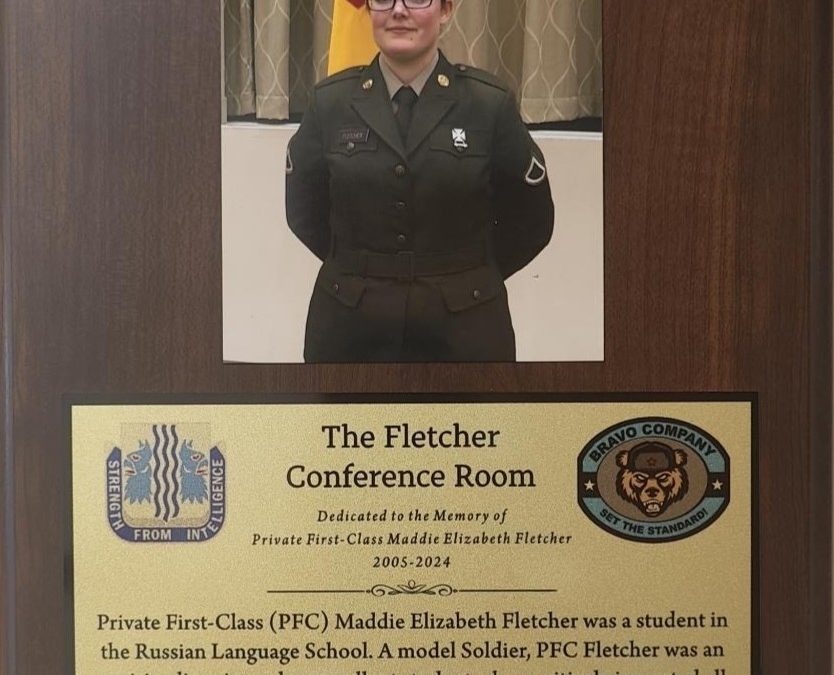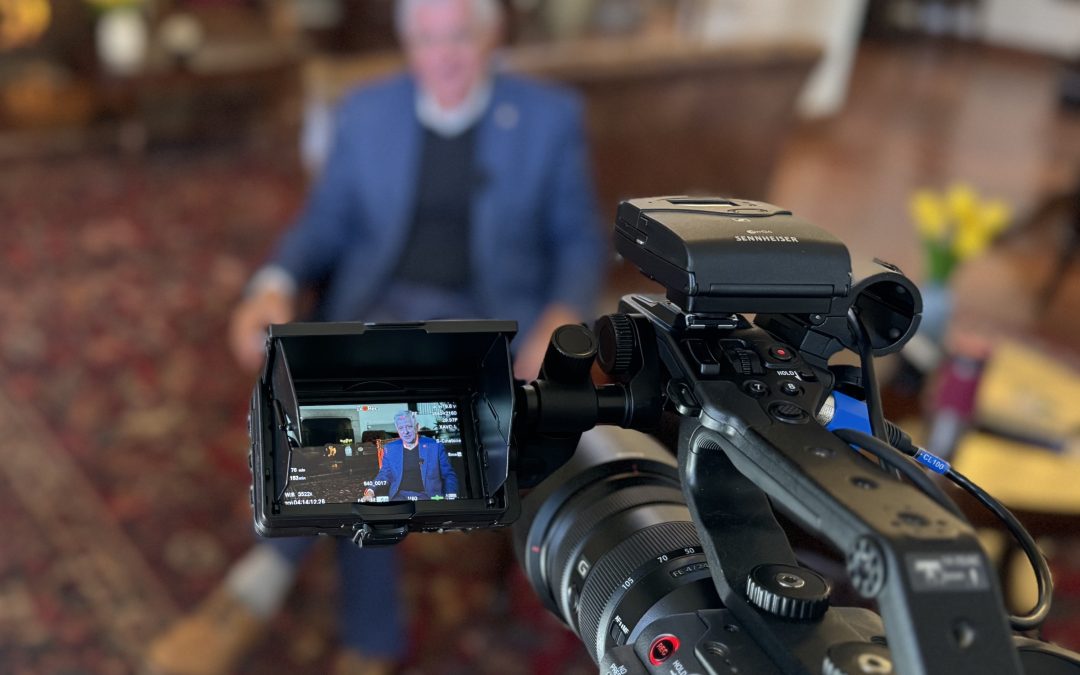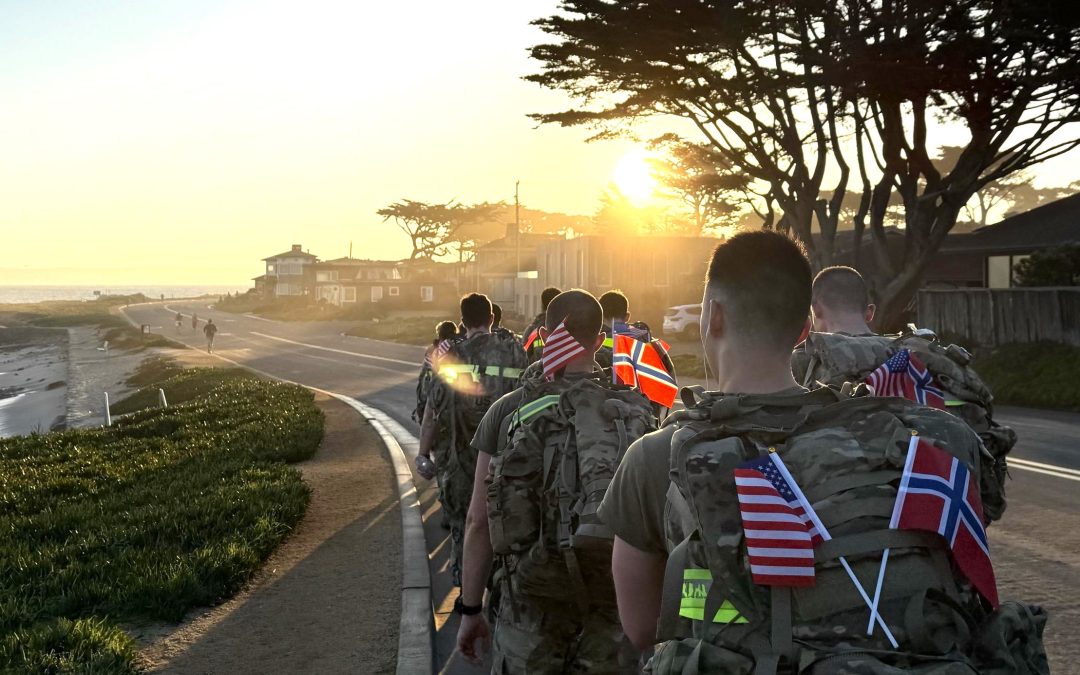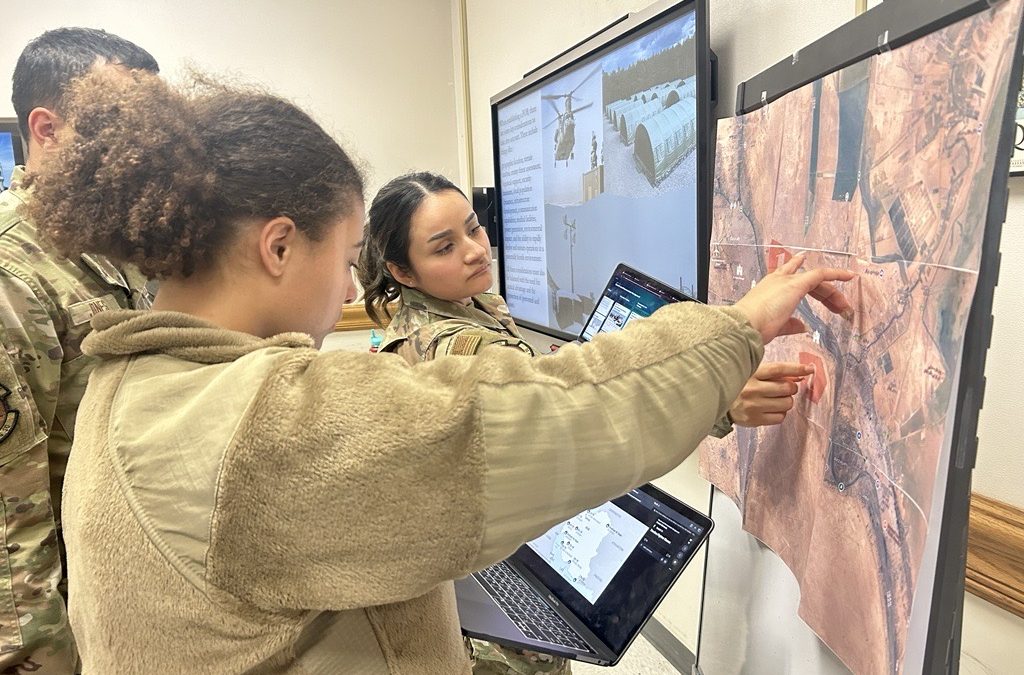By Natela Cutter
Two members of the Brazilian Army Language Center visited the Defense Language Institute Foreign Language Center Oct. 22-26, to gain knowledge about the inner workings of one of the largest foreign language schools in the nation.

(L->R) Lt. Col. Kevin Bosch, director of the DLIFLC Foreign Area Officer Program, shakes the hand of Lt. Col. Sergio Avelar Tinoco, commander of the Brazilian Army Language Center, welcoming him and Capt. Carlos Henrique Souza Vilas Boas, head of the English Department. (Photo by Natela Cutter)
Lt. Col. Sergio Avelar Tinoco, commander of the school, and Capt. Carlos Henrique Souza Vilas Boas, head of the English Department, spent a week in Monterey, speaking with their DLIFLC counterparts, program managers, instructors and students at the Presidio of Monterey and at DLIFLC instructional facilities.
“Our language school is located in Rio de Janeiro near the famous Copa Cabana Sidewalk,” said Vilas Boas, “We provide intensive English courses for officers and NCOs who are assigned to work at Brazilian Embassies abroad and also instructors….who are going to teach at foreign military schools,” he explained, adding that unlike at DLIFLC, language teachers must join the military in order to be an instructor.
“All of our teachers are Brazilians. They have (foreign language) college degrees and then they join the military. After that they have nine months of military training so they can work with the Army as language teachers,” explained Vilas Boas, pointing out the contrast to DLIFLC instructors who are mainly native-born.

Visitors from the Brazilian Army Language School observe a Russian immersion class on the Presidio of Monterey. (Photo by Natela Cutter)
One of the key differences the visitors pointed out is that their language school does not have enlisted members in contrast to DLIFLC, where the majority of the students are enlisted and are normally first-time learners of the foreign language being taught.
“Our process is different than yours. So, to go to our school one has to be already accredited in the language skills. He has to take our language exams and prove himself that he has the talent. Then, our army choses him and to sends him abroad,” said Avelar Tinoco.
One of the key stops of the Brazilian Army School delegation was DLIFLC’s Foreign Area Officer Program, headed by an Army lieutenant colonel who is responsible for the overseeing of all FAOs studying at DLIFLC and the neighboring Naval Postgraduate School.
“I found the mission of the Brazilian language school quite interesting. It’s tailored to meet their militaries language requirements, which is primarily to provide a language refresher course prior to sending their personnel to Embassies around the world,” said the Institute’s FAO director, Lt. Col. Kevin Bosch.

Lt. Col. Sergio Avelar Tinoco and Capt. Carlos Henrique Souza Vilas Boas enjoy lunch with students and staff at Belas dinning facility at the Predidio of Monterey. (Photo by Natela Cutter)
During their stay, the officers spent time visiting classrooms, talking with instructors and administrators, but also spending time with students, sitting in on their classes, eating lunch and finding out about their daily routine.
The Brazilian Army Language School was stood up about three years ago with an average of some 200 students attending per year and 30 to 40 teachers. Languages taught there include English, Spanish, German, French, Italian, Russian and Portuguese for foreigners.




